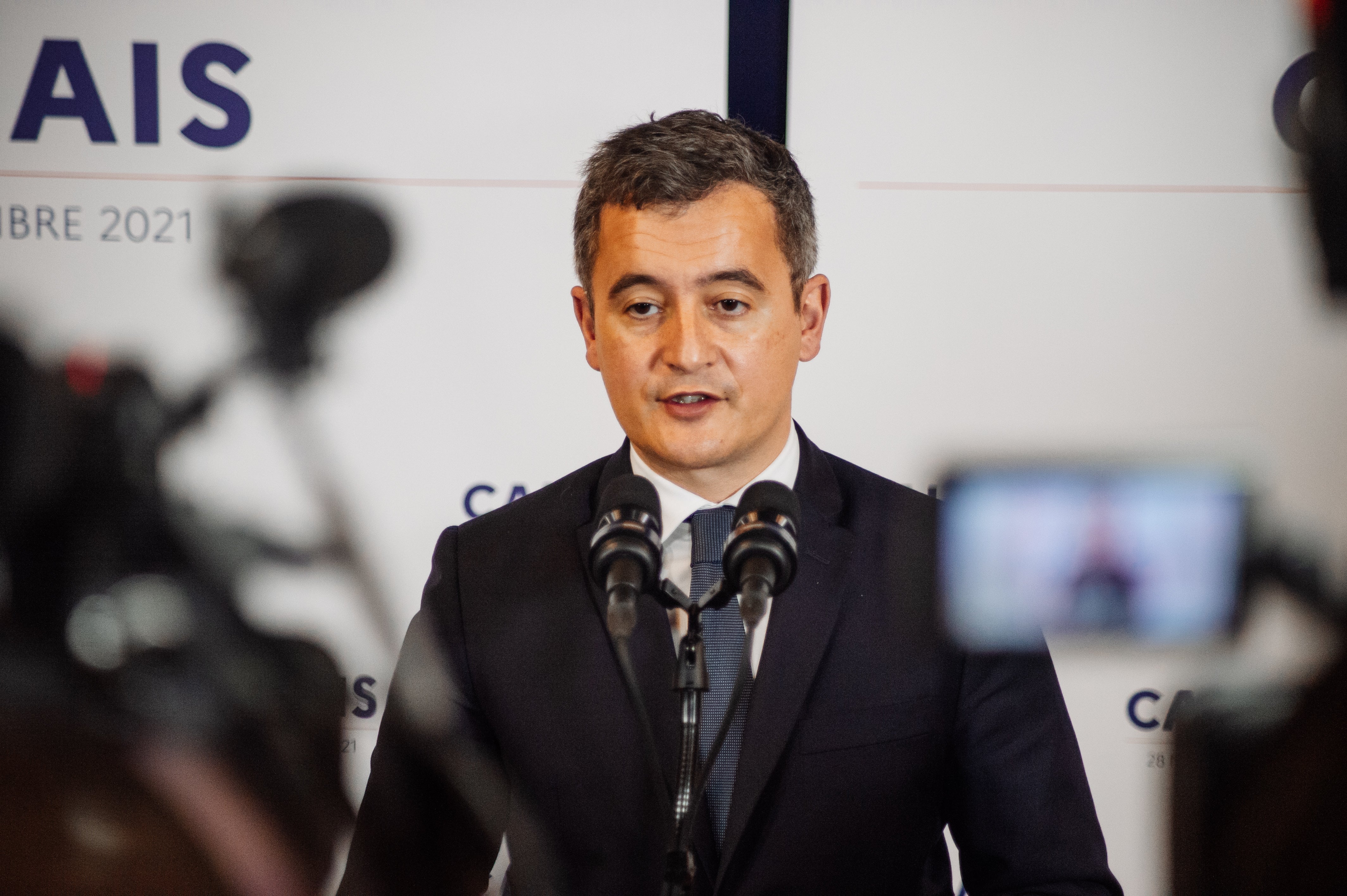France says UK ‘not taking its share’ of asylum seekers and Channel push-backs will not be accepted
‘We are not the subcontractors of the British government,’ interior minister says as he rejects joint coastal patrols
Your support helps us to tell the story
From reproductive rights to climate change to Big Tech, The Independent is on the ground when the story is developing. Whether it's investigating the financials of Elon Musk's pro-Trump PAC or producing our latest documentary, 'The A Word', which shines a light on the American women fighting for reproductive rights, we know how important it is to parse out the facts from the messaging.
At such a critical moment in US history, we need reporters on the ground. Your donation allows us to keep sending journalists to speak to both sides of the story.
The Independent is trusted by Americans across the entire political spectrum. And unlike many other quality news outlets, we choose not to lock Americans out of our reporting and analysis with paywalls. We believe quality journalism should be available to everyone, paid for by those who can afford it.
Your support makes all the difference.The UK is “not taking its share” of asylum seekers and France will not accept planned operations to force small boats out of British waters, its interior minister has said.
Gerald Darmanin told a press conference that thousands of people were crossing the English Channel in dinghies because “they have no other way” of reaching the UK.
He said that France would not accept pushbacks at sea, or joint patrols involving British authorities to stop boats from being launched.
“Can you imagine French police officers on British beaches?” he asked. “We are not the subcontractors of the British government.”
It comes after groups including a union representing Border Force staff threatened legal action over the pushback plans, and the government refused to confirm if any operations had taken place.
Mr Darmanin said prime minister Jean Castex would be writing to Boris Johnson to outline France’s position and offer an agreement on issues including legal routes to Britain and the transfer of unaccompanied minors.
“We cannot accept – and this is a red line for the French government – the practice of turning boats back at sea,” the interior minister added.
He hit out at “public invectives” by British politicians targeting French and European political leaders.
“From the moment there is no more double-speak and we can hold serious discussions, and our private exchanges correspond to our public exchanges, the French government is ready to very quickly resume discussions with Britain,” Mr Darmanin said.
“We cannot change our geography, so we need to come to an understanding with our British friends and allies even though they have chosen to leave Europe.
“The common interest of Europe and the UK is to work together to try to solve this problem.”
Talks between the two governments have soured in the days since at least 27 people drowned off the coast of Calais in the worst migrant disaster of its kind.
On Friday, Mr Johnson tweeted a letter to the French president before it had been officially sent, which asked for an agreement allowing “all illegal migrants to cross the Channel to be returned”.
Priti Patel’s invitation to a meeting of EU interior ministers on the subject of migration on Sunday was retracted as a result of the letter.
Speaking at Monday afternoon’s press conference, Mr Darmanin said France was already accepting a “disproportionate” number of asylum applications.

“What we want is a well-balanced agreement between the UK and the EU, which would address all the problems,” he added. “An agreement that would open up legal ways of migrating to Britain.
“We note that there are 30,000 asylum applications in the UK, in France there are 150,000. The UK is not taking its share.”
French officials said they were intensifying efforts to combat people smugglers by doubling staff in a specialist unit, and aerial surveillance increased with a Frontex plane and two additional helicopters patrolling the coast.
Fernand Gontier, the director of French border police, told the press conference that the launch point for Channel crossings had dispersed from the areas around Calais and Dunkirk to a 150km stretch of coastline.
Mr Gontier said that more than 1,500 smugglers had been arrested in the first 10 months of this year, and investigations were ongoing.
He added that the dinghies and engines used were being manufactured in China and transported to France via Turkey and Germany, by international criminal organisations.
The British government has been accused of “recklessly” ignoring years of warnings that its policies would cause increasing numbers of asylum seekers to risk their lives in small boats.
Ms Patel was a member of the Foreign Affairs Committee in 2019, when it found the use of small boats was rising and the UK’s response could “have the counterproductive effect of forcing migrants to make desperate journeys across the Channel”.
There have been numerous other warnings, including from United Nations agencies, that reducing safe and legal routes “increase the likelihood of people turning to smugglers as an alternative”.
Nick Thomas-Symonds, Labour’s shadow home secretary, said the failure to offer refugees alternatives was “continuing to force more people into the hands of people smugglers”.
The government is backing a series of laws in the Nationality and Borders Bill that would make arriving in Britain by small boat a criminal offence and make it easier to prosecute anyone who steers a vessel.
A Home Office impact assessment for the bill , published in September, said evidence supporting the effectiveness of the government’s plans was “limited”.
“There is a risk that increased security and deterrence could encourage these cohorts to attempt riskier means of entering the UK,” it added.






Join our commenting forum
Join thought-provoking conversations, follow other Independent readers and see their replies
Comments